18 months -3 years old
Toddlers
Children want to participate fully in their society. They want to challenge themselves and perform important, meaningful activities. During this stage of life, a child begins to master balance, coordination, and reasoning skills. Their experiences construct the base of their personality and lay the foundation for the adults they will become.
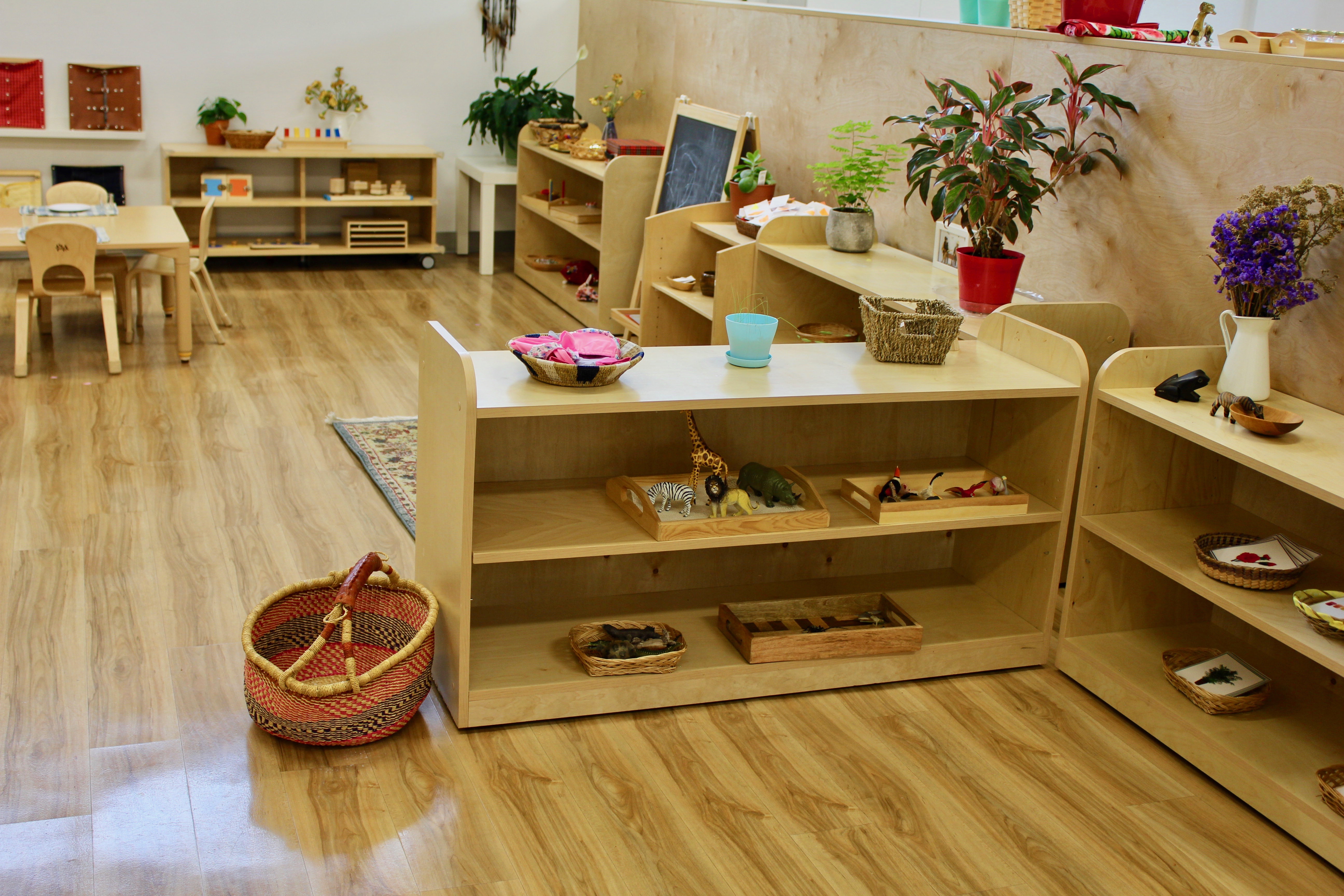
Classrooms
Classrooms are comprised of materials that are customized for children and that enable full exploration and participation. They are designed to challenge the children, but also allow them to learn and succeed on their own. This leads to greater inner security, high self-esteem, a positive self-image, and strong habits of concentration.
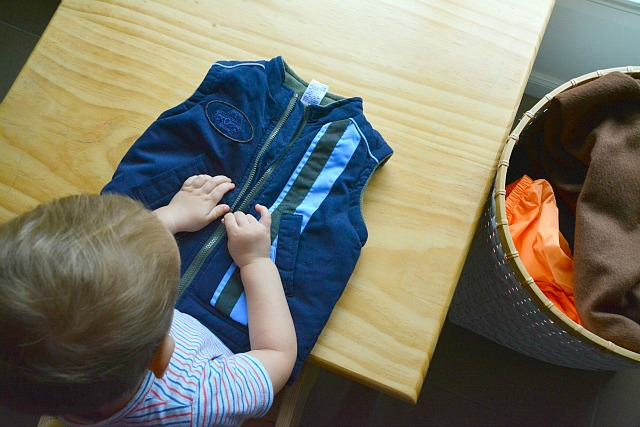
1. Practical Life:
Practical Life materials teach the child self-control and help develop a positive self-image. They help the child concentrate, make intelligent decisions, and master the early stages of materials in other work areas. The children feel that they are capable of doing significant work for themselves as well as for others, and that they are contributing to their community. Through the repetition of Practical Life activities, children develop and refine basic skills that will serve them all their lives. Pouring water, preparing snacks, caring for plants, washing their hands, folding clothes, etc. are some of the activities that are aimed to enhance the child’s development of fine motor control, hand-eye coordination, balance, sense of order, concentration, and independence.
Practical Life is divided into two areas:
• Care of self
• Care of environment.
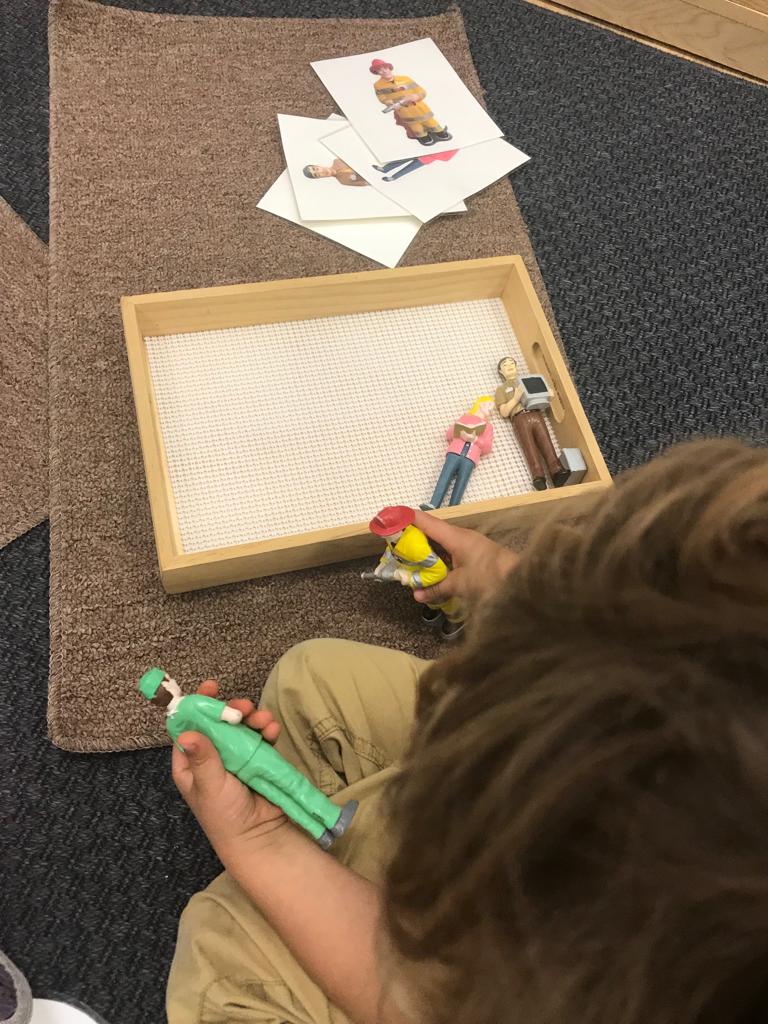
2. Language:
El desarrollo del lenguaje comienza antes del nacimiento y continúa siendo una parte importante del desarrollo de un niño durante los primeros tres años de vida. Podemos ayudar a desarrollar habilidades de lenguaje óptimas al involucrar al niño en la conversación desde que nace. En el ambiente Montessori, el lenguaje es un componente integral del trabajo diario en el aula. A través de tarjetas, objetos y todas las cosas presentes en el ambiente, los niños aprenden vocabulario y cómo expresarse. Hay muchas oportunidades para fomentar la conversación; cantar canciones, juegos de vocabulario y lectura que permiten a los niños ampliar sus habilidades en este campo.
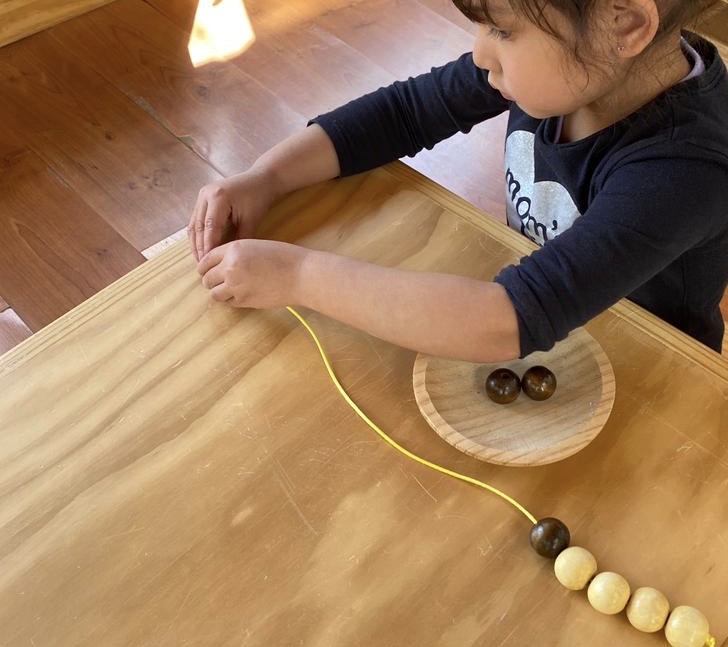
3. Motor Development, Problem Solving, and Logical Thinking:
• These materials help to develop fine motor skills through simple everyday activities such as collecting, counting, sorting, putting things in order, classifying, and comparing sizes and colors.
• Outdoor activities are a crucial part of the curriculum because they help the child develop gross motor skills such as jumping, crawling, throwing, catching, and so on.
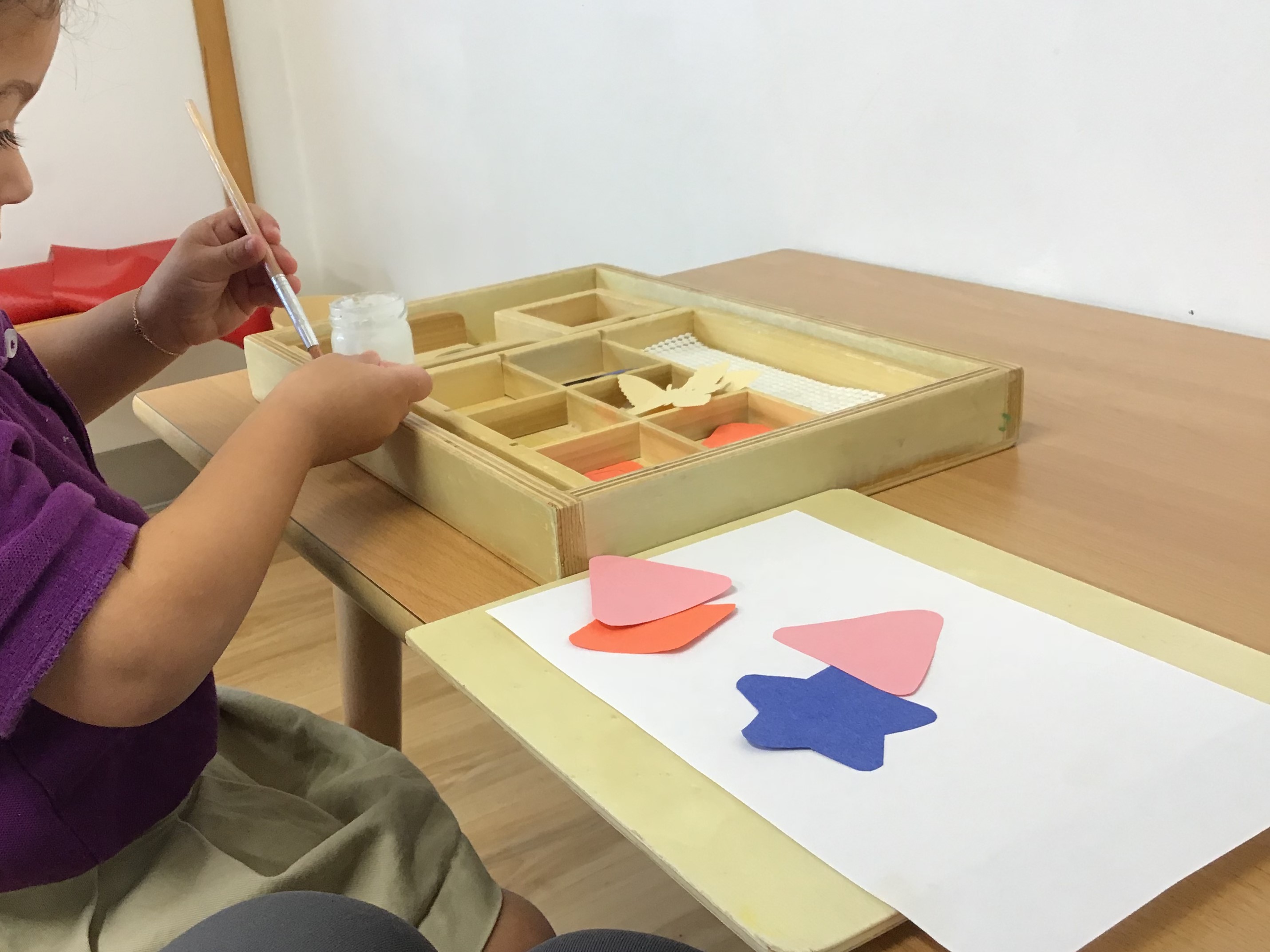
4. Art and Music:
Through these activities we encourage creativity and free expression on the child.
• Singing, rhythm activities, and playing instruments are all daily activities in the Toddler classroom.
• Art is explored in the form of drawing, painting, cutting, and gluing, among others

5. Social Skills:
The environment offers children to accomplish activities independently, as well as activities that require them to cooperate with others and to become active members of their small community.


